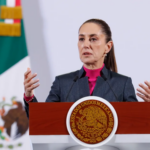
There was a time when guard duty meant remaining available for work. The professionals were reachable or resting in the hospital itself until there was an emergency and they were called to care for the patients. It has been a long time since several generations of specialists do not remember or have not even come to know that situation. “Now it is a piecework job for 24 hours straight, something totally unaffordable,” says the Secretary of State for Health, Javier Padilla. The minister, Mónica García, has promised to respond to them in this legislature. “They are an anachronism,” she said.
Ending 24-hour guards is a desirable objective, as recognized by unions and the Collegiate Medical Organization, but it may be the most complicated challenge that the Ministry has set itself. Not only because health management corresponds to the autonomous communities, but because any change in this sense implies a reorganization of hundreds of services, an increase in staff and addressing an issue that is not minor: the complements that medical personnel receive for this function can account for up to 30% of your income.
“In the short term, we are going to propose a study that will have two legs. On the one hand, to address what is the necessary legislative modification, which we consider to be a reform of the Framework Statute. On the other hand, analyze the organizational possibilities, based on the fundamental principle that, for this to work, each center has sufficient management autonomy to adapt in the way it considers,” Padilla explains to elDiario.es.
Más País already included the proposal to eliminate the guards in its 2019 electoral program. Sumar did the same in July 2023. And García has never hidden his opposition to these exhaustive work days that, he considers, “put at risk the rest, conciliation and the mental health of our health professionals.”
24-hour shifts are an anachronism that puts the rest, conciliation and mental health of our healthcare professionals at risk.
We will give you an answer this term.
— Mónica García (@Monica_Garcia_G) February 26, 2024
With a petition on the change.org platform, which has accumulated more than 86,000 signatures to end these guards, García’s words have raised voices in favor, but also doubts about the implications of the measure, mainly due to the salary part. “We have to guarantee that the transition towards the end of the shifts has to be done with transformations in the remuneration model so that professionals do not lose purchasing power,” Padilla reassures.
“The salaries of doctors, for the demands and responsibility, are not competitive with the rest of Europe. The guards come to make up for these issues, so to propose their elimination we would first have to raise salaries, which have had a tremendous loss of purchasing power with the (2010 financial) crisis,” indicates Vicente Matas, head of the Center for Studies of the Granada Medical Union, which has prepared a report with the net salaries received by both doctors and residents. In the following graph you can see this average net amount, according to the year of specialty and the profile of the attending physician who works in a hospital.
As can be seen, the figure varies depending on the autonomous communities. Total salaries range between 1,959 euros net for a first-year resident in Asturias and 5,353 for an adjunct with a permanent position over 55 years of age in Murcia. If the case of hospital doctors is analyzed, leaving aside the MIR, guards account for a quarter of their income or more over decades of career. As can be seen in the following table, the older you are, the lower the salary proportion. From the age of 55, they are at 20% or less in practically all autonomous communities: it is at that age when they are no longer mandatory. However, Hernández points out that many professionals “continue doing them because, when you get used to an income, it is very difficult to do without that financial amount.”
But the issue goes beyond the merely retributive. “The ultimate goal is that, when carrying out their healthcare activity, a doctor is in full physical and mental condition. That is what you have to look for,” says the president of the State Council of Medical Colleges, Tomás Cobo. He is an anesthetist and remembers dramatic shifts. “One night we were in the operating room for many hours due to a traffic accident. We finished at five in the morning and by the time we were able to lie down for a while, another accident occurred with five people injured, three of whom died.”
There are various studies that relate the number of working hours with greater risks, both for patients and for the professionals’ own health. “In England, an increase in perioperative mortality was seen between 10 at night and 6 in the morning, because during those hours there was a key element: fatigue,” says Cobo. This country replaced 24-hour guards with 12-hour ones. A study, published in the journal Annals of Emergency Medicineshowed that full-day shifts affected the cognitive performance of doctors.
We are aware, for the prevention of occupational risks, that (24-hour days) have problems for the mental and physical health of the doctors who carry them out.
Angela Hernandez
— Amyts
“We are aware, for the prevention of occupational risks, that there are problems for the mental and physical health of the doctors who perform them,” agrees the general secretary of the Amyts union, Ángela Hernández, who also points out their “affectation for the conciliation of family and work life. According to this organization’s estimates, eliminating 24-hour guards would mean increasing staff by around a third. “What happens is that they are currently being used to provide continuous care in a cheaper way and with smaller staff than they should,” explains Hernández.
Both Cobo and Hernández agree on the need for that still photo in which Health works and on the importance of having each service and the specific casuistry of each specialty. “We have to address the issue, but with a very careful, professional and technical debate, in which partisan positions neither from the Government nor from the opposition, neither at the central level nor with the autonomous communities, are influenced, because we can get into a situation. very important mess,” he says. Hernández is committed to ending the 24-hour first call shifts, in which doctors attend to the patient when they arrive at the hospital, such as the emergency room, pediatrics or gynecology, and studying others where it may be more complicated, due to the smaller number of professionals. “Neurosurgery, plastic or cardiac surgery are very subspecialized and it would be very difficult to cover them,” he gives as an example.
With understaffed staff, the experts consulted do not see it as feasible, at least in the short term, to increase staff, in a context of lack of professionals in some specialties. “We are already very short even to cover retirements in many specialties,” says Matas. The Secretary of State is no stranger to this reality. “Hirings would have to be made for the current situation,” acknowledges Padilla, who is committed to also opening the conversation to excessive hours: “We know that a very high percentage of residents work more hours than are allowed and, most likely, , also the attached ones.”
In the case of the emoluments received by professionals who are carrying out their specialty, the situation is more bloody. This training lasts for five years, during which they receive a salary that increases year by year and is completed with what they receive for guard duty. According to data from the Andalusian medical union, this supplement represents close to half of their salary in most of the autonomous communities, with Ceuta and Melilla (dependent on Health), Madrid, the Canary Islands and Catalonia at the bottom. To interpret the data, it must be taken into account that in those services with fewer personnel, there are fewer professionals for the same shifts to be covered.
The Ministry also focuses on “aspects related to management capacity.” “For example, we can improve the resolution capacity of the emergency room door, so that patients leave with their problem resolved or have the option of a preferential appointment with the specialist, without needing to be seen at that very moment by a hospital specialist. “, says Mónica García’s ‘number two’. In any case, the intention is to move towards a shift model, except in some cases in which longitudinality makes more sense, with the mind set in some cases already in motion. “In Madrid, at the Infanta Leonor de Vallecas Hospital, the emergency service does not have 24-hour shifts and has a good evaluation of the workers,” says Padilla. This is not the only case, at the Barcelona Clinic this specialty also works in shifts.
In hospital emergencies there is surely the alternative of working in shifts and adjusting the doctors to the attendance curves. The problem is that, at this time, the use of these services has increased inappropriately
José Ramón Repullo
— Health planning expert
The expert in health planning and health economics José Ramón Repullo points out a similar line. “The hospital emergency room surely has the alternative of working in shifts and adjusting the number of doctors to the attendance curves. The problem is that, at this time, the use of these services has increased in an inappropriate way,” he indicates. And here he points to two factors that affect the guards: “The difficulty in seeing specialists and the problems in Primary Care are generating a compensatory and inappropriate demand,” he indicates. In this sense, he recognizes that “it is not easy to refer a patient for consultation the next day” or that “from Primary care decompensations of elderly people can be referred to an internal medicine hospitalization, without touching on the emergency, as has been done on a pilot basis in some hospitals.”
Repullo also points out another factor. And all the variables in such a complex and transcendental matter are important. “I have the hypothesis that many doctors have migrated from specialties to subspecialties, because they give more prestige and reputation, and that way you reduce your workload. This makes the specialty more complicated, and also causes human resources to disappear from the task of general care,” develops the expert, who calls for “governance and management of the centers and professionalizing managers to bring order at a time when it is highly interfered with by political criteria.”
In any case, Health recognizes that it is the Ministry that can establish the legal framework and facilitate management tools, but it is the communities that will have to make the decision, center by center: “It is a responsibility of the ministries, but We have always said that our role is to make things easy for them so that they can individually do what is socially desirable. And what is socially desirable is to move towards a model without 24-hour guards.”
Graphics by Raúl Sánchez.
Source: www.eldiario.es

